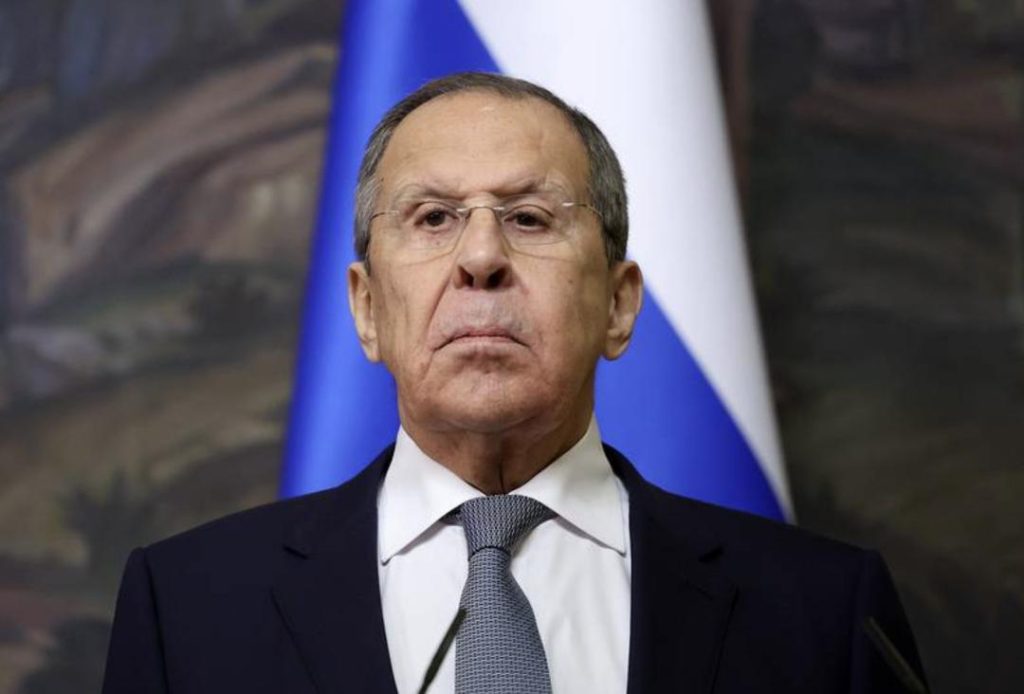
Ceasefire Can’t Bring Lasting Solution to Ukraine Issue: Russia FM
The ongoing conflict between Russia and Ukraine has been a major concern for the international community. Despite numerous diplomatic efforts, the situation remains volatile, with both sides accusing each other of aggression. Recently, Russian Foreign Minister Sergey Lavrov emphasized that a ceasefire or pause on hostilities along the line of contact cannot alone bring a lasting solution to the conflict.
In an interview, Lavrov reiterated that NATO’s expansion caused the Ukraine war, and that it is essential to address the root causes of the conflict. He stated, “It’s no less important to achieve full respect for human rights in the territories remaining under the control of Kyiv regime.” This statement highlights the Russian government’s long-standing concerns about the treatment of ethnic Russians and Russian-speaking Ukrainians in the country.
Lavrov’s comments came as the conflict between Russia and Ukraine continues to escalate. The fighting has resulted in significant human suffering, with thousands of people killed, injured, or displaced. The international community has been working to broker a peaceful resolution to the conflict, but so far, efforts have been unsuccessful.
The Russian Foreign Minister’s remarks also touched on the issue of NATO’s expansion. Russia has long been concerned about the alliance’s growth and sees its eastern expansion as a threat to its national security. Lavrov’s statement is a clear indication that Russia will not back down on this issue and will continue to push for a reversal of NATO’s expansion.
The Ukrainian government, on the other hand, has maintained that Russia is the aggressor and that its actions are aimed at destabilizing the country. Ukraine has accused Russia of supporting separatist groups in the eastern regions of Donetsk and Luhansk, which have declared independence from Ukraine. The conflict has resulted in significant economic and humanitarian costs for Ukraine, and the country has been seeking international support to address the situation.
The conflict between Russia and Ukraine has also had significant implications for the global community. The situation has raised concerns about the potential for further escalation and the impact on global security. Many countries have called for a peaceful resolution to the conflict, and the international community has been working to facilitate dialogue between the two sides.
In recent years, the conflict has also led to increased tensions between Russia and the West. The United States and its allies have imposed sanctions on Russia in response to its actions in Ukraine, and Russia has retaliated by imposing its own sanctions on Western countries. The situation has led to a significant deterioration in relations between Russia and the West, and many experts believe that the conflict could have far-reaching consequences for global security.
Despite the challenges, there are still opportunities for a peaceful resolution to the conflict. Both sides have expressed a desire to find a negotiated solution, and the international community has been working to facilitate dialogue. The United Nations has played a key role in efforts to broker a peace agreement, and many countries have called for a negotiated solution.
In conclusion, the conflict between Russia and Ukraine is a complex and challenging issue that requires a nuanced understanding of the underlying causes and implications. While a ceasefire or pause on hostilities may provide a temporary respite from the fighting, it is unlikely to bring a lasting solution to the conflict. As Lavrov’s statement highlights, it is essential to address the root causes of the conflict, including NATO’s expansion and the treatment of ethnic Russians and Russian-speaking Ukrainians.
The international community must continue to work towards a peaceful resolution to the conflict, and both sides must be willing to make concessions. A lasting solution will require a comprehensive approach that addresses the underlying issues driving the conflict. With diplomacy and perseverance, it is possible to find a peaceful resolution to the conflict and restore stability to the region.



